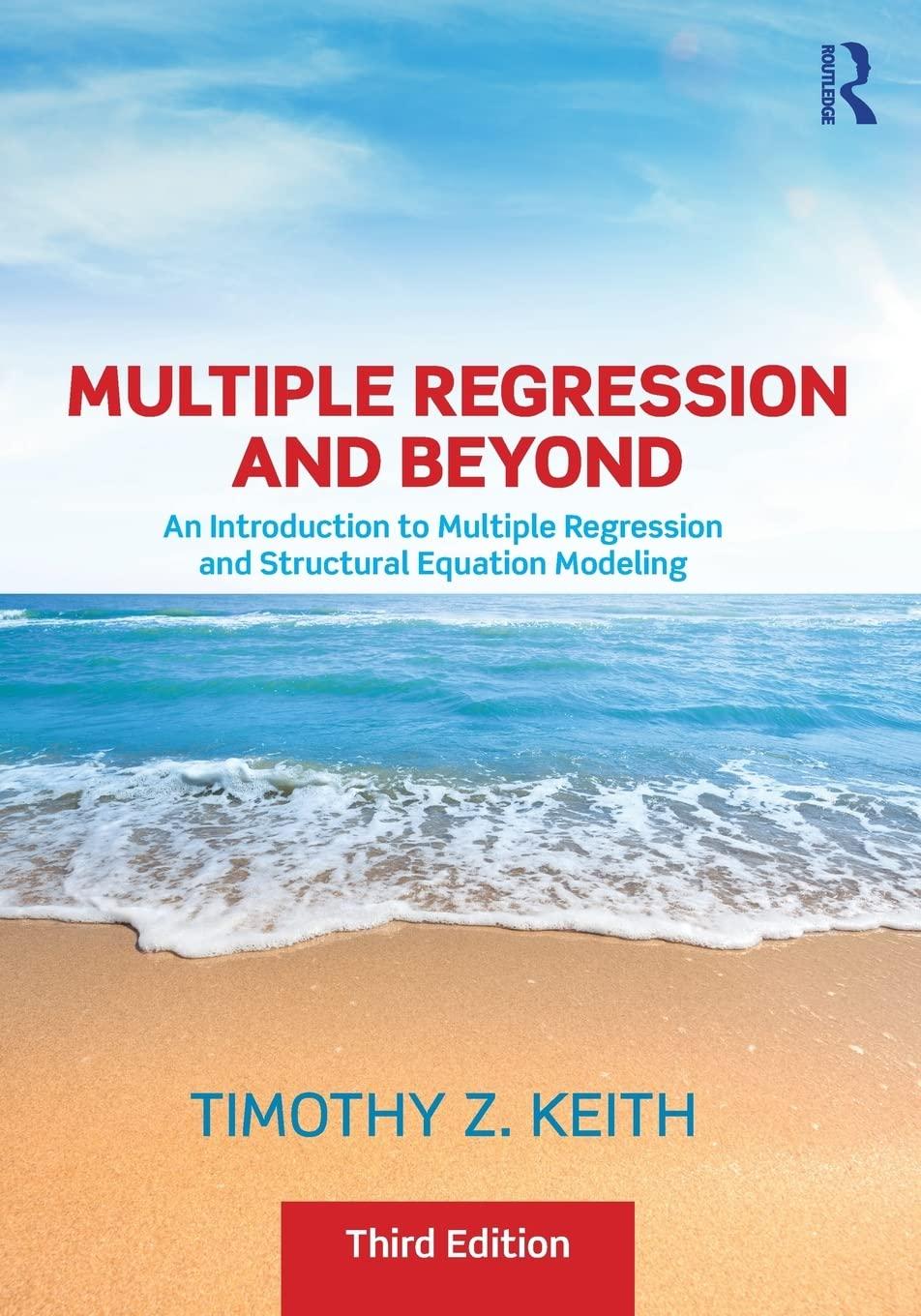In an interesting study of a controversial topic, Sethi and Seligman studied the effect of religious fundamentalism
Question:
In an interesting study of a controversial topic, Sethi and Seligman studied the effect of religious fundamentalism on optimism (1993). Think about this problem: are religious fundamentalists likely to be less optimistic or more so than those with a more “liberal”
religious orientation? Perhaps fundamentalists have a strict and stern religious orientation that will lead to greater pessimism (and thus less optimism). Or perhaps those with more fundamentalist views decide to let God worry about the problems of the world, thus leading to a more optimistic view. What do you think?
The files titled “Sethi & Seligman simulated” (there are SPSS, Excel, and text [.dat]
files) are designed to simulate the Sethi & Seligman data from a MR perspective.3 The primary variables of interest are Fundamentalism (coded so that a high score represents high religious fundamentalism, a low score religious liberalism) and Optimism
(high score = optimistic, low score = pessimistic). Also included are several measures of religiosity: the extent of influence of religion in one’s daily life (Influence), religious involvement and attendance (Involve), and religious hope (Hope). It may be important to control for these variables in examining the effect of Fundamentalism on Optimism.
Regress Optimism on these variables, using both simultaneous and sequential regression.
For the sequential regression, design your regression to determine whether Fundamentalism affects Optimism above and beyond the effects of Involvement, Hope, and Influence. Could you get the same information from the simultaneous regression?
Interpret your results.
Step by Step Answer:







